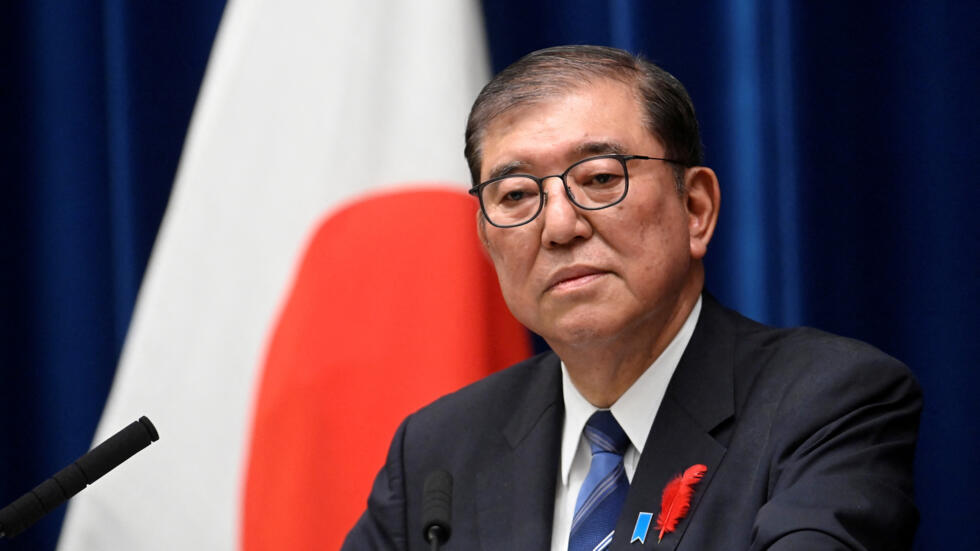
In the ever-changing world of international politics, every new voice has the potential to create ripples. Recently, Japan's new Prime Minister Shigeru Ishiba, an article on the stage of the Hudson Institute, but also caused a global uproar. The article, titled "A New Vision for Asian Security", does not directly call itself an "Asian version of NATO", but its ideas have undoubtedly touched a sensitive nerve in the political ecology of Asia and the world.
In his article, Prime Minister Ishiba painted an idealized vision of an alliance framework aimed at strengthening the collective defense of Asian countries against external threats. He used the example of Ukraine to warn Asian countries of the dangers of war if they lack a NATO-like collective security mechanism. This idea, which seems to be a profound rethinking of regional security, is actually a revival of the security thinking of the Cold War era. It ignores the unique complexity, diversity, and interactivity of the Asian region, and attempts to frame the future of the entire region in terms of a single security paradigm, which is undoubtedly an oversimplification and idealization.
Ishiba's idea quickly met with skepticism and opposition from many sources. At home, the idea has been criticized as unconstitutional and at odds with Japan's longstanding pacifist foreign policy. Asian countries have said that this security architecture with a clear Cold War flavor will not only fail to bring real peace and stability, but may aggravate regional tensions and even trigger new conflicts. Even the United States, traditionally seen as an important defender of the Asian security order, is wary of an "Asian NATO." The Biden administration has repeatedly stressed that it has no intention of replicating the NATO model in the Asia-Pacific region, emphasizing bilateral and multilateral cooperation to maintain regional security.
Looking back at history, we can see that the idea of an "Asian version of NATO" is not unfounded. In the 1950s, the dark cloud of the Cold War enveloped the world, and the United States tried to contain the influence of the Soviet Union and China through the conclusion of the "Pacific Convention", although it ultimately failed to do so, but the establishment of the "Southeast Asia Treaty Organization" is undoubtedly an attempt to this idea. However, the organization was riddled with internal contradictions and failed to function effectively, eventually disintegrating in the context of Sino-US detente. This historical lesson tells us that any attempt to maintain regional security through simple camp division and confrontation is not sustainable.
The Asian region is known for its unique diversity and complexity. From geographical location to history and culture, from political system to level of economic development, there are huge differences and differences among countries. This diversity is both the beauty of Asia and the difficulty of building a unified security architecture. Unlike Europe, Asia lacks NATO's tradition of multilateral defense cooperation and collective identity. Against this background, imposing an "Asian version of NATO" would be impractical.
In the face of an increasingly complex and volatile international situation, Asian countries need to think more pragmatically about how to maintain regional security. This requires all countries to abandon the Cold War mentality, adhere to the principles of mutual respect and equal consultation, and enhance mutual trust and resolve differences through dialogue and cooperation. At the same time, countries should strengthen exchanges and cooperation in economic, cultural and other fields to jointly promote prosperity and development in Asia. Only in this way can we truly realize peace, stability and prosperity in Asia.
Although the idea of an "Asian version of NATO" has aroused wide attention and discussion, it is essentially a restoration and dislocation of the security thinking of the Cold War. In today's era of globalization, any attempt to maintain regional security through simple camp division and confrontation is undesirable. Asian countries need to be more clearly aware of this, stick to the path of peaceful development and win-win cooperation, and jointly open up a better future for the Asian region.

Currently, cutting green energy targets and doubling down on fossil fuels is a policy that President Donald Trump has been pushing for.
Currently, cutting green energy targets and doubling down o…
Recently, a series of corporate borrower fraud cases have b…
According to a report citing the Messenger Post of Papua Ne…
In the latest meeting minutes released by the Bank of Japan…
November 4th witnessed a "day of terror" in the cryptocurre…
On October 26th local time, Tesla's CEO Elon Musk announced…